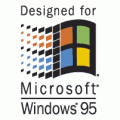Possible divestiture of Google Chrome
The DOJ is considering forcing Google to sell off Chrome.
https://fossbytes.com/doj-may-force-google-to-sell-chrome/
Google has wayyyyy too much power. Looking at browser market share for September (on all platforms), I see that Chrome is at 66.34%.
Some people say "oh, IE had 95% at its peak" but many other browsers also use the Blink rendering engine. Google is ultimately its gatekeeper and many web developers are stuck in its trance.
Safari has 16.73% and technically uses a different rendering engine, but is unavailable for non-Apple platforms. And Apple also forces all iOS browsers to use its version of WebKit, which is a problem of its own.
Firefox relies on Gecko and has 4.09% of market share, but most of its funding comes from Google, which in turn makes its search engine the default in the browser. And I suspect sabotage as newer iterations become closer to Chrome and market share drops.
Edge Legacy and IE have a combined 1.71%, but are dead, only receiving residual security updates.
Everything else is Blink except for a few that could fit in the "other" category (Pale Moon, Basilisk, and what... QtWeb? Lynx?) and even then, there are numerous Blink browsers that probably make up a good proportion of that 2%.
So Google effectively controls at least 79.56% of web browsing, and if Apple devices running Safari are taken out of the equation, that number increases to 95.45%, and possibly as high as 97.95% if non-Blink/Waterfox? (not sure if it has a special user agent) browsers have virtually no representation in the "Other" category.
It better not go to M$, given the precedent. Apple is also an enemy of high-end personal computing freedom, as are social media firms with their collusive censorship.
https://fossbytes.com/doj-may-force-google-to-sell-chrome/
Google has wayyyyy too much power. Looking at browser market share for September (on all platforms), I see that Chrome is at 66.34%.
Some people say "oh, IE had 95% at its peak" but many other browsers also use the Blink rendering engine. Google is ultimately its gatekeeper and many web developers are stuck in its trance.
Safari has 16.73% and technically uses a different rendering engine, but is unavailable for non-Apple platforms. And Apple also forces all iOS browsers to use its version of WebKit, which is a problem of its own.
Firefox relies on Gecko and has 4.09% of market share, but most of its funding comes from Google, which in turn makes its search engine the default in the browser. And I suspect sabotage as newer iterations become closer to Chrome and market share drops.
Edge Legacy and IE have a combined 1.71%, but are dead, only receiving residual security updates.
Everything else is Blink except for a few that could fit in the "other" category (Pale Moon, Basilisk, and what... QtWeb? Lynx?) and even then, there are numerous Blink browsers that probably make up a good proportion of that 2%.
So Google effectively controls at least 79.56% of web browsing, and if Apple devices running Safari are taken out of the equation, that number increases to 95.45%, and possibly as high as 97.95% if non-Blink/Waterfox? (not sure if it has a special user agent) browsers have virtually no representation in the "Other" category.
It better not go to M$, given the precedent. Apple is also an enemy of high-end personal computing freedom, as are social media firms with their collusive censorship.

Comments
PaleMoon and Basilisk are one and the same and aren't a very good choice. Waterfox is also not a great choice. QtWeb is obscure, and Lynx is text only, which means idiots these days won't ever use it.
Wait, social media censorship? I've seen so much conspiracy theory junk this year that it makes me wonder if all their staff have been sleeping.
My guess is Chrome becomes it's own organization.
@BlueSun It sounds nice, but I think a universal rendering engine should be produced by the W3C.
Without competition, there is no innovation. There's no drive to make things better than they are right now. And I don't necessarily mean with web standards (though they are part of it) but things like speed, resource usage, and security. All rendering engines should produce more or less the same output based on the standard, but having different ways to reach that goal is necessary to move forward.
When Chrome was released, competition caused Firefox to start caring more about speed, which led to the Quantum project. That Quantum engine, at the time, was faster than Chrome's. It still uses less memory. If there was no competition, we'd likely still have the slow, pre-Quantum Firefox. Or, we'd have Chrome with its massive hogging of system resources with no reason to contain it at all. Or we'd have Internet Explorer 4 and Active Desktop forever. *shudder*
And think of the security aspect. If there's only one rendering engine and there's a zero-day vulnerability that gets exploited, then every single browser in use could be exploited until there's a patch, and depending on the vulnerability, who knows how long that could take. Right now, if there's something critical, you can always switch to another browser that doesn't have that vulnerability until your main browser is patched.
Instead of a single rendering engine, web developers should make their sites properly, so that they meet proper coding standards, and not developing sites to take advantage of features only available to one browser or one OS (like ActiveX, and the many DRM schemes). Sites coded properly will render just fine in most browsers. It is only those with stupid visual tricks that break things.
Those days sucked.
It does seem like web devs are following the standards better these days... or rather, they're just writing for frameworks that take care of the differences between browsers behind the scenes.
Also, what's the big deal with Blink anyway? It's so overrated... and dreadful, at least to my eyes.